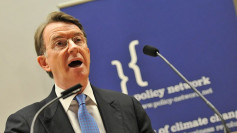Prince Andrew has successfully retained his residency at the Royal Lodge in Windsor following a contentious financial and housing dispute with his older brother, King Charles III. The Duke of York, 64, reportedly managed to secure the necessary funds to maintain his stay at the expansive 31-room estate after King Charles decided to cut his £1 million ($1.3 million) annual allowance and discontinue payments for private security.
The financial review, led by Sir Michael Stevens, Keeper of the Privy Purse, confirmed that Andrew's funds were sourced through legitimate means. Buckingham Palace has declined to comment on the matter, which has drawn significant public attention due to Andrew's recent controversies and diminished role within the royal family.
Since 2003, Prince Andrew has resided at the Royal Lodge alongside his ex-wife, Sarah Ferguson. The property became the focus of a high-profile dispute when King Charles proposed relocating Andrew to Frogmore Cottage, a smaller residence formerly occupied by Prince Harry and Meghan Markle. Andrew's refusal to accept the relocation reportedly led to the termination of his allowance and security funding. Despite the pressure, the Duke of York refused to leave the Royal Lodge, resulting in a standoff that ended with King Charles conceding.
An excerpt from Robert Hardman's book, Charles III: New King. New Court. The Inside Story, shed light on the King's motivations. Charles' decision to reduce Andrew's financial support was reportedly part of a broader initiative to curb royal spending and impose stricter accountability measures. "The Duke informed the monarch that, regardless of any ultimatum, he was going to stay put at Royal Lodge anyway," Hardman wrote. Complicating matters is Andrew's long-term lease on the property, which extends until 2078.
Prince Andrew's financial situation has been the subject of public interest and speculation. While palace officials have confirmed the legitimacy of his funds, reports suggest he has derived income from business connections in the Middle East and rental profits from a $6 million property in London's Mayfair. Additionally, Sarah Ferguson has bolstered their finances through earnings from her romance novels.
The dispute over the Royal Lodge underscores ongoing tensions within the House of Windsor. Andrew's fall from public favor began with his ill-fated 2019 interview with BBC's Newsnight and escalated following his legal settlement with Virginia Giuffre, who accused him of sexual assault in a civil lawsuit. Though the case was settled out of court, Andrew was stripped of his military titles and patronages and stepped away from official royal duties-a move that intensified calls for reform and accountability within the monarchy.
Despite King Charles' decision to cut off his brother's allowance and security, the Duke of York has demonstrated financial resilience, complicating efforts to limit his royal privileges. These measures are part of Charles' broader plan to modernize and streamline the monarchy, focusing resources on fewer working royals.
Some critics have interpreted the King's inability to force Andrew's relocation as a sign of weakened authority. According to The Times, royal accountants accepted Andrew's assurances about his financial independence, allowing him to retain his position at the Royal Lodge. Royal biographer Andrew Lownie told The Daily Beast that the Duke "has plenty of money" and has managed to sustain his wealth despite stepping back from official duties.






